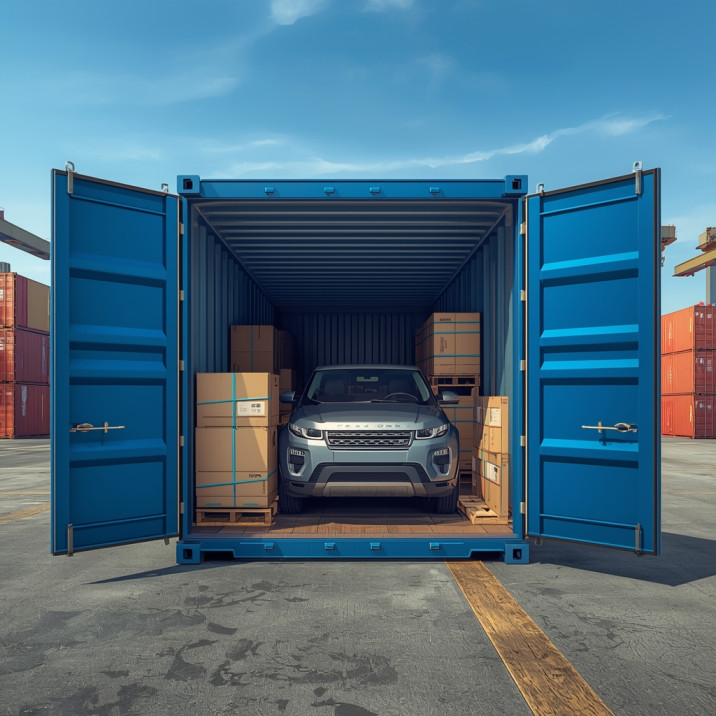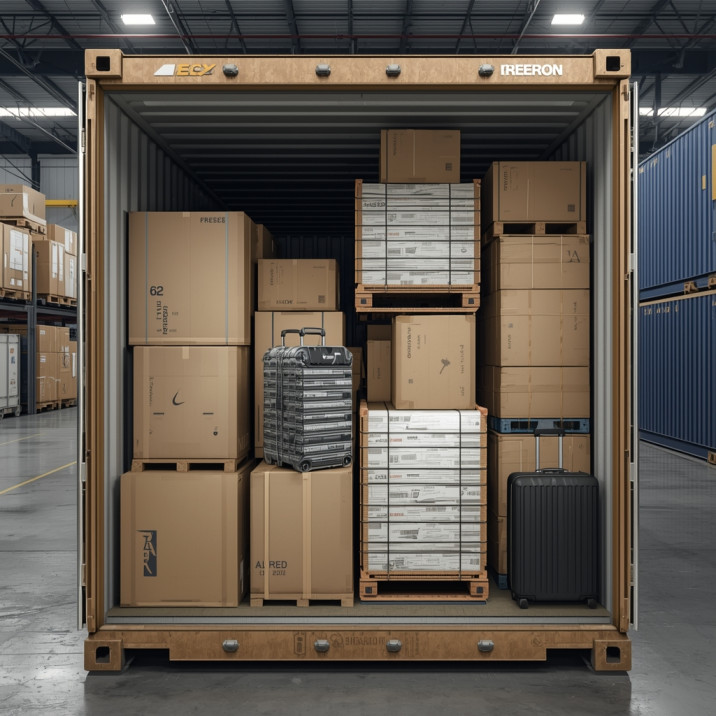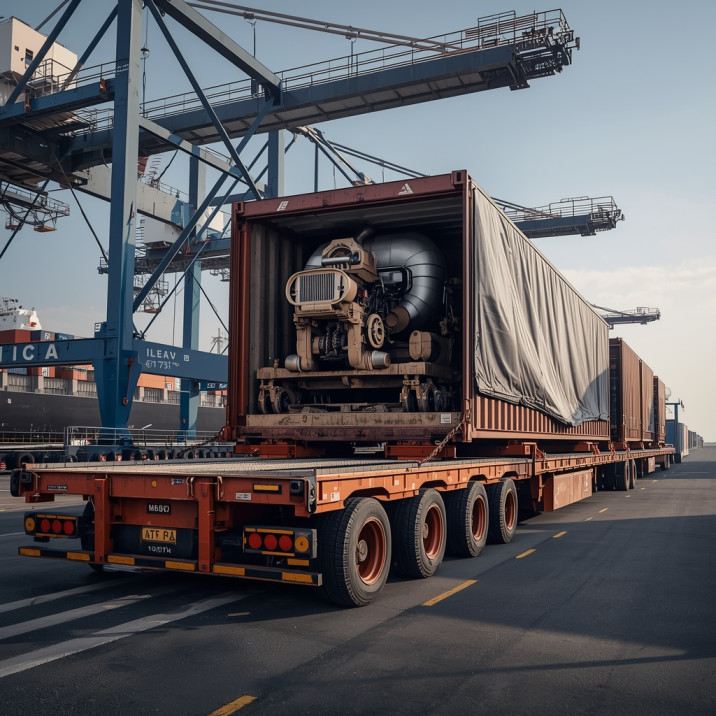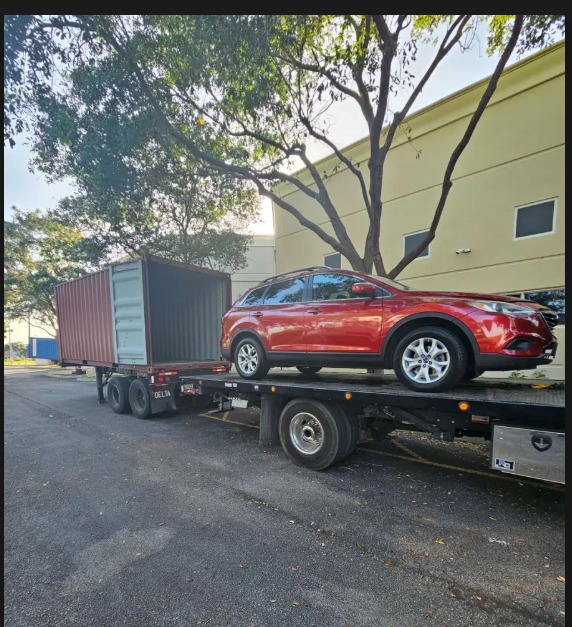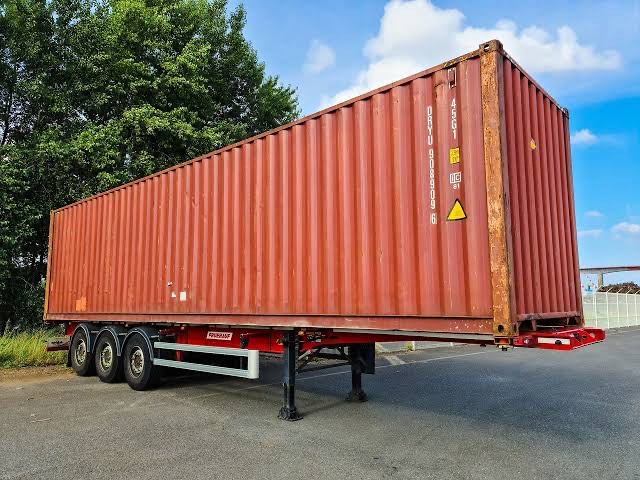Container shipping to Nigeria is a reliable and cost-effective solution for transporting vehicles, household goods, heavy machinery, and commercial cargo overseas. Whether you need to ship a container to Nigeria for personal or business purposes, international container shipping offers secure handling and flexible options, including 20ft, 40ft, open top, and flat rack containers, making it suitable for almost all cargo types.
At All Transport Depot, we provide professional container shipping to Nigeria with end-to-end logistics support. The cost of container shipping to Nigeria typically ranges from $2,500–$4,000 for a 20ft container and $4,000–$6,500 for a 40ft container, depending on origin, cargo type, and shipping method. With transparent pricing and expert coordination, we ensure your shipment arrives safely and on time.
Container Sizes Available for Shipping
When planning container shipping, selecting the right container size is essential for ensuring cargo safety, cost efficiency, and smooth transit. Different container sizes are designed to accommodate everything from personal belongings and vehicles to heavy machinery and oversized cargo. Below are the most commonly used container options available for shipping to destination country.
20ft Shipping Container
The 20ft container is one of the most popular choices for international container shipping to XXX. It is ideal for small to medium-sized shipments and offers a cost-effective solution for transporting cargo securely.
Best suited for:
- One vehicle or SUV
- Household goods and personal effects
- Small commercial shipments
40ft Shipping Container
A 40ft container provides nearly double the space of a 20ft container, making it suitable for large shipments or multiple items. It is commonly used for business cargo, relocation shipments, and multiple vehicles.
Best suited for:
- Multiple vehicles
- Large household relocations
- Bulk commercial cargo
Open Top Container
Open top containers are designed for cargo that cannot be loaded through standard container doors due to height or shape. Cargo is loaded from the top using cranes and secured properly for ocean transport.
Best suited for:
- Tall or oversized machinery
- Construction equipment
- Industrial cargo
Flat Rack Container
Flat rack containers are used for heavy, wide, or irregularly shaped cargo that does not fit inside standard containers. These containers have open sides and are specially designed for oversized and heavy loads.
Best suited for:
- Heavy machinery
- Construction and mining equipment
- Large industrial components
What Can Be Shipped in a Container
Container shipping allows a wide range of cargo types to be transported safely and efficiently. Whether you are shipping personal belongings or commercial freight, containers provide secure, weather-protected space suitable for almost all types of goods. Below are the most common items shipped in containers.
Vehicles (Cars, SUVs & Motorcycles)Cars, SUVs, and motorcycles can be safely shipped in 20ft or 40ft containers, offering maximum protection during transit. Container shipping is especially preferred for luxury, classic, or non-running vehicles.
Household Goods & Personal EffectsContainer shipping is ideal for relocating household items such as furniture, appliances, electronics, and personal belongings. Both FCL and LCL shipping options are available depending on shipment size.
Commercial Cargo & General FreightBusinesses commonly use container shipping to XXX for transporting retail goods, inventory, raw materials, and packaged commercial products in bulk.
Heavy Machinery & Industrial EquipmentConstruction equipment, agricultural machinery, and industrial tools can be shipped using standard containers, open top containers, or flat rack containers, depending on size and weight.
Oversized & Project CargoLarge or irregularly shaped cargo that exceeds standard container dimensions can be shipped using flat rack or open top containers, ensuring secure handling for specialized shipments.
Safe & Secure Shipping for All Cargo TypesContainer shipping to XXX provides excellent protection against weather, handling damage, and theft, making it a reliable solution for both personal and commercial shipments.
Container Shipping Process (Step-by-Step)
Container shipping follows a simple and structured process to ensure safe and timely delivery.
Step 1: Request a shipping quote by sharing cargo details and destination.
Step 2: Book the container and confirm the sailing schedule.
Step 3: Load and secure cargo inside the container.
Step 4: Prepare documents and complete export clearance.
Step 5: Ocean freight transit to the destination country.
Step 6: Customs clearance at the destination port.
Step 7: Final delivery or port pickup.
Required Documents for Container Shipping
To ensure smooth and compliant container shipping, certain documents are required for export and import clearance. Having accurate paperwork helps avoid delays, penalties, and customs issues.
Commonly Required Documents
-
Bill of Lading (B/L) – Proof of shipment and ownership
-
Commercial Invoice – Details of cargo value and description
-
Packing List – Itemized list of goods inside the container
-
Passport or Company ID – For personal or commercial shipments
-
Import Permit (if required) – Based on cargo type and destination regulations
Additional documents may be needed depending on the nature of the cargo and local customs requirements in the destination country.
We operate and coordinate loading through strategically located U.S. facilities, providing flexible, reliable, and nationwide coverage for a wide range of cargo, including vehicles, household goods, commercial freight, and HAZMAT-compliant shipments.
Our primary loading locations include:
- Savannah, GA
- Atlanta, GA
- Los Angeles, CA
- Elizabeth, NJ
- Tacoma, WA
- Chicago, IL
In addition to facility-based loading, we also offer container door-to-ocean service, allowing a container to be delivered directly to a residence or commercial property for on-site loading, subject to access, safety, and scheduling requirements.
On-Site Container Loading Guidelines
We will deliver the ordered container to your location on the scheduled date and arrange return once loading is completed.
Important Loading Conditions
- The container will arrive on a chassis and will remain on the chassis at all times
- The container will not be placed on the ground
- The client is fully responsible for all loading activities
- Two (2) hours of free loading time are included
- Additional loading time: rate to be advised
- Weekend option: additional surcharge applies (Friday drop-off with Sunday pick-up after 5:00 PM)
- A 4-hour delivery window will be assigned, subject to traffic and scheduling conditions
- Vehicles or machinery require a proper loading ramp or dock
- Household goods may be lifted off the chassis only at the client’s cost and responsibility
- The client must ensure all required loading equipment is available, including but not limited to:
- Ramps
- Loading docks
- Forklifts
- Cranes or lifting services
- If the container is not ready for pickup on the scheduled date, a $250 per day delay surcharge will apply
- These guidelines ensure safe loading, operational efficiency, and compliance with carrier and port requirements.
Transit Time for Container Shipping to Nigeria
The transit time for container shipping to Nigeria typically ranges from 25 to 40 days, depending on the origin port, shipping route, and carrier schedule. Shipments from major U.S. ports usually take 30 to 40 days, while shipments from Europe may arrive in 25 to 35 days under normal conditions.
Transit times can be affected by factors such as port congestion, weather conditions, customs inspections, and whether the shipment is FCL or LCL. Additional time should also be allowed for customs clearance and inland delivery after the container arrives in Nigeria.
Cost to Ship a 20ft Container to Nigeria
A 20ft container works for smaller moves, including one car or personal cargo. Prices vary by departure port and cargo type.
- From Gulf Coast (Houston, New Orleans): $1,600 – $2,300
- From East Coast (Newark, Baltimore): $1,800 – $2,500
- From West Coast (Los Angeles, Oakland): $2,600 – $3,600
Cost to Ship a 40ft Container to Nigeria
A 40ft container is ideal for large household moves, multiple vehicles, or commercial shipments. Rates vary by U.S. departure location.
- From Gulf Coast USA: $2,900 – $4,200
- From East Coast USA: $3,100 – $4,400
- From West Coast USA: $4,300 – $5,700
Major Ports
Nigeria has several key seaports that handle international container cargo efficiently, serving both commercial and personal shipments.
The major ports used for container shipping to Nigeria include:
Lagos Apapa Port – Nigeria’s busiest container port
Tin Can Island Port (Lagos) – Major hub for containerized cargo
Port Harcourt Port – Serves the eastern and southern regions
Onne Port – Preferred for commercial and industrial cargo
The choice of port depends on cargo type, final delivery location, and customs requirements. Selecting the right Nigerian port helps minimize transit time, reduce inland transportation costs, and ensure smooth cargo clearance.
Import Duties and Taxes
Import costs depend on the product classification and declared value. Nigeria applies duties, VAT, and sometimes surcharges.
- Customs Duty: Generally 5–35% depending on goods.
- VAT: Standard 7.5% on most imports.
- Additional Fees: May apply to used cars or restricted items.
FAQs
Is container shipping to Nigeria safe?
Yes, container shipping to Nigeria is safe and secure. Containers are sealed, weather-protected, and ideal for shipping vehicles, household goods, commercial cargo, and machinery.
How much does it cost to ship a container?
Generally, the cost of container shipping ranges from $2,500–$4,000 for a 20ft container and $4,000–$6,500 for a 40ft container. However, the final price can vary depending on several factors, including the origin port, cargo type, and shipping method.
Can I ship a car in a container to Nigeria?
Yes, cars, SUVs, and luxury vehicles can be safely shipped in 20ft or 40ft containers, providing maximum protection during transit.
What is the cheapest way to ship cargo?
For smaller shipments, LCL (Less than Container Load) is the most affordable option. For larger shipments, FCL (Full Container Load) is more cost-effective.
How long does container shipping to Nigeria take?
Container shipping to Nigeria typically takes 25 to 40 days, depending on the origin port, route, and customs clearance process.
Do I need a customs broker in Nigeria?
Using a licensed customs broker in Nigeria is highly recommended to ensure smooth clearance and avoid delays at the port.
✈️ Get a Container Shipping Quote Today
Ready to ship your Container? Here’s what we’ll need to get started:
📧 Email: ship@alltransportdepot.com
📲 WhatsApp: +1 (470) 791-4497
📞 Phone: +1 (678) 528-5794
At All TransportDepot Inc., we ensure premium service for safe, secure, and reliable car air shipping worldwide.
👉 Don’t wait—Get Your Free Quote Now

Kevin is a skilled auto mechanic specializing in vehicle inspections at Big Apple Auto Shippers. His thorough inspections guarantee that every car is in optimal condition before embarking on its journey. Kevin’s dedication ensures the reliability of every shipment.

